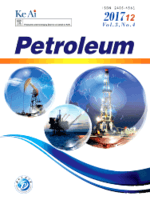
Petroleum
Scope & Guideline
Leading the charge in energy engineering and environmental stewardship.
Introduction
Aims and Scopes
- Enhanced Oil Recovery (EOR) Techniques:
Research focusing on innovative methods for improving oil recovery from reservoirs, including chemical flooding, gas injection, and thermal methods. - Reservoir Characterization and Modeling:
Studies aimed at understanding reservoir properties and behaviors through advanced modeling techniques, including numerical simulations and data-driven approaches. - Petroleum Geology and Exploration:
Investigations into geological formations, sedimentary processes, and the assessment of hydrocarbon potential, contributing to more efficient exploration strategies. - Chemistry and Material Science in Petroleum Engineering:
Research on the application of new materials, such as nanofluids and polymers, in drilling and production processes to enhance efficiency and reduce environmental impact. - Environmental Impact and Sustainability:
Studies addressing the environmental implications of petroleum extraction and usage, including carbon capture and storage (CCS) and bioremediation techniques. - Machine Learning and Artificial Intelligence Applications:
Exploration of AI and machine learning technologies for predictive modeling, optimization, and automation in various aspects of petroleum engineering.
Trending and Emerging
- Sustainable Practices and Carbon Management:
A growing emphasis on sustainability, carbon capture, and storage (CCS) techniques, reflecting the industry's need to address climate change and reduce carbon footprints. - Nanotechnology in Petroleum Engineering:
Increased research on the application of nanomaterials for improved efficiency in drilling fluids, enhanced oil recovery, and reservoir management, showcasing the integration of advanced materials science. - Data-Driven Approaches and Machine Learning:
A notable rise in the application of machine learning and big data analytics for predictive modeling, reservoir characterization, and production optimization, highlighting the industry's digital transformation. - Enhanced Oil Recovery (EOR) Innovations:
Emerging techniques for EOR, including the use of supercritical CO2 and novel surfactants, are gaining traction as researchers explore more effective ways to extract hydrocarbons. - Environmental Remediation Technologies:
An increase in studies focusing on bioremediation and the use of environmentally friendly materials in oil recovery processes, reflecting a shift towards minimizing ecological impacts.
Declining or Waning
- Traditional Drilling Technologies:
Research related to conventional drilling methods is decreasing as the industry shifts towards more advanced technologies and techniques, such as managed pressure drilling and automated systems. - Basic Reservoir Engineering Principles:
While foundational studies are essential, there is a noticeable decline in publications focused solely on traditional reservoir engineering concepts, with a shift towards more complex and interdisciplinary approaches. - Conventional Hydrocarbon Extraction Methods:
There is a waning interest in studies that focus on conventional oil extraction methods without integration of modern techniques or sustainability considerations, reflecting a broader industry shift towards enhanced recovery and alternative resources.
Similar Journals
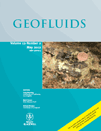
GEOFLUIDS
Fostering Interdisciplinary Dialogue in Earth SciencesGEOFLUIDS, published by WILEY-HINDAWI, is an esteemed open-access journal dedicated to advancing the field of Earth and Planetary Sciences since its inception in 2001. With an ISSN of 1468-8115 and E-ISSN 1468-8123, the journal has become increasingly accessible, allowing for broader dissemination of research findings since adopting an open-access model in 2017. The journal has established itself within the academic community, achieving a Scopus rank of #86 in the domain of General Earth and Planetary Sciences, placing it in the 56th percentile, and garnering a Q3 category classification as of 2023. GEOFLUIDS serves as a platform for interdisciplinary exchange of ideas and findings—encouraging contributions that explore fluid dynamics in geological systems and their implications for natural resources and environmental management. Researchers, professionals, and students alike are invited to contribute to and engage with the latest research in this growing field, further enhancing the journal's role in shaping the future of Earth science research.
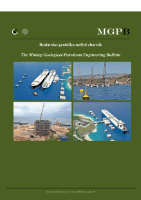
Rudarsko-Geolosko-Naftni Zbornik
Uncovering Insights in Mining and Petroleum EngineeringRudarsko-Geolosko-Naftni Zbornik, the esteemed journal published by the University of Zagreb's Faculty of Mining, Geology and Petroleum Engineering, serves as a vital platform for advancing knowledge in the fields of Earth sciences, energy, and geology. With an ISSN of 0353-4529 and an E-ISSN of 1849-0409, this open-access journal has been disseminating high-quality research since 1989, contributing significantly to scientific discourse in Croatia and beyond. As of 2023, it holds an impressive categorization in various quartiles, notably achieving Q2 in Earth and Planetary Sciences and Q3 in several related domains, showcasing its relevance and impact within the academic community. The journal's commitment to quality is reflected in its Scopus rankings, placing it in competitive positions across diverse disciplines. Researchers, professionals, and students alike will find invaluable resources and insights that foster innovation and collaboration in their respective fields, making Rudarsko-Geolosko-Naftni Zbornik an essential read for those dedicated to exploring the complexities of natural resources and environmental challenges.
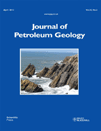
JOURNAL OF PETROLEUM GEOLOGY
Pioneering Insights for Earth and Energy SciencesJOURNAL OF PETROLEUM GEOLOGY, published by WILEY, is a prestigious peer-reviewed journal that serves as a vital platform for advancing knowledge in the fields of Earth and Planetary Sciences, Energy Engineering, and Geology. Established in 1978, this journal has cultivated a significant impact, reflected in its 2023 Q2 category rankings across multiple disciplines including Fuel Technology and Geology. Notably, it holds a commendable position in Scopus rankings, marking its importance with a 68th percentile in Earth and Planetary Sciences - Geology. While the journal operates under a traditional subscription model, its extensive repository of research articles facilitates crucial discussions and innovations among researchers, professionals, and students alike. The JOURNAL OF PETROLEUM GEOLOGY is pivotal for those seeking to explore and contribute to the evolving landscape of petroleum geology, offering insights that are essential for both academic and applied science domains.

Geoenergy Science and Engineering
Connecting Science and Engineering for a Greener TomorrowGeoenergy Science and Engineering, published by Elsevier in the Netherlands, is a burgeoning academic journal dedicated to the interdisciplinary exploration of geoenergy technologies. With ISSN 2949-8929 and E-ISSN 2949-8910, the journal serves as a crucial platform for disseminating research and advancements in the fields of energy engineering, geotechnical engineering, and sustainable energy practices. Spanning years from 2023 to 2024, it aims to publish high-quality original research, reviews, and case studies that address the pressing challenges and innovations within the realm of geoenergy. Although the journal currently holds modest Scopus rankings, it is poised to increase its impact and recognition in its respective fields, making it an essential resource for researchers, professionals, and students engaged in the urgent quest for sustainable energy solutions.

Geomechanics for Energy and the Environment
Advancing Research at the Intersection of Earth Sciences and Environmental ImpactGeomechanics for Energy and the Environment, published by ELSEVIER, stands as a premier journal in the fields of geotechnical engineering, Earth sciences, and risk assessment. With an impressive impact factor and ranking in the Q1 category across multiple relevant disciplines including Computers in Earth Sciences and Engineering Geology, this journal serves as a critical platform for groundbreaking research and innovation from 2015 to 2024. Located in the Netherlands, it aims to bridge the gap between geomechanics and energy solutions, making it indispensable for professionals and academics focused on sustainability and environmental impacts. Although it operates on a traditional access model, the rich and varied content published in this journal is essential for those at the forefront of research, helping to foster a deeper understanding of the interplay between geomechanical processes and environmental challenges. Your contributions to this journal not only enhance scientific dialogue but also pave the way for advancements in risk management and geotechnical practices that are crucial for the future.

Moscow University Geology Bulletin
Illuminating the Path of Geological DiscoveryMoscow University Geology Bulletin, published by SPRINGER INT PUBL AG, is a prominent platform for disseminating critical research in the field of Earth and Planetary Sciences. With an ISSN of 0145-8752 and an E-ISSN of 1934-8436, this journal is well-regarded for its contributions to diverse geological studies and interdisciplinary advancements that shape our understanding of the planet. The journal has established itself in the academic community, particularly noted for its ranking in the Q3 category within Earth and Planetary Sciences as of 2023. Despite its limited open-access options, the Moscow University Geology Bulletin remains an essential resource for researchers, professionals, and students through its well-curated articles and synthesis of geoscientific knowledge. With annual volumes converging from various years, including significant years like 2012 to 2024, it aims to uphold its mission of fostering scholarly dialogue and innovation in the geosciences.
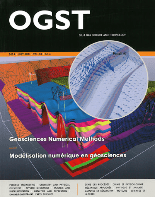
Oil & Gas Science and Technology-Revue d IFP Energies nouvelles
Leading the Charge in Energy ScienceOil & Gas Science and Technology - Revue d'IFP Energies nouvelles, published by EDP SCIENCES S A, is a distinguished journal in the field of energy science, specifically focusing on the latest advancements in oil and gas technologies. Since its transition to Open Access in 1997, the journal has been dedicated to disseminating high-quality research that addresses the challenges and innovations inherent in energy engineering and fuels. With an ISSN of 1294-4475 and an E-ISSN of 1953-8189, this journal holds a significant position in academic circles, reflecting its contributions to sustainable energy solutions. The journal's rankings in Scopus showcase its impact, particularly in the areas of Energy Engineering and Power Technology (Rank #105/224), Chemical Engineering (Rank #131/279), and Fuel Technology (Rank #51/100). As a pivotal resource for researchers, professionals, and students, it aims to foster knowledge exchange and promote innovative technologies essential for the ongoing evolution of the energy sector.

Nafta-Gaz
Advancing Energy Solutions for a Sustainable FutureNafta-Gaz is a leading academic journal published by the Institute of Oil and Gas, dedicated to advancing the fields of energy engineering, environmental engineering, fuel technology, and geosciences. With a strong emphasis on both theoretical and applied research, this journal serves as a critical resource for professionals, researchers, and students looking to deepen their understanding of contemporary challenges in oil, gas, and renewable energy sectors. Though currently categorized in the Q4 quartile across several relevant disciplines, including Energy Engineering and Geophysics, Nafta-Gaz is committed to fostering innovative discussions and pragmatic solutions that pertain to energy management, environmental policy, and technological advancements. Published in Poland, Nafta-Gaz is positioned amid the rapidly evolving energy landscape, providing a platform for the exchange of knowledge and best practices. The journal does not currently operate under an open access model, ensuring that content is curated for a specialized audience while maintaining the integrity of scholarly communication.
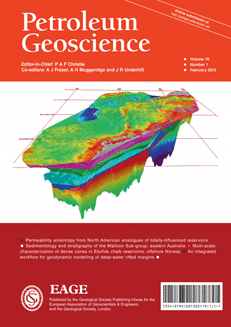
PETROLEUM GEOSCIENCE
Advancing the Frontiers of Petroleum GeosciencePETROLEUM GEOSCIENCE is a prestigious journal published by the GEOLOGICAL SOCIETY PUBLISHING HOUSE, catering to the dynamic field of geosciences with a particular focus on petroleum exploration and production. With its ISSN 1354-0793 and E-ISSN 2041-496X, this essential academic resource has been at the forefront of research since its inception in 1995, and is set to continue leading through 2024. The journal has distinguished itself with impressive rankings, achieving Q1 statuses in categories such as Earth and Planetary Sciences (miscellaneous) and Geology, and Q2 placements in Economic Geology, Fuel Technology, and Geochemistry and Petrology for the year 2023. With high recognitions in Scopus rankings, including a 79th percentile in Earth and Planetary Sciences (Geology), it is an invaluable platform for researchers and professionals seeking to share their findings and stay updated on industry advancements. Although not an open-access journal, its rigorous peer-review process ensures that published articles contribute significantly to the ongoing discourse in petroleum geosciences, fostering knowledge exchange and innovation in the field. Researchers from across the globe consider this journal a vital venue for their work, enhancing its reputation and importance in the academic landscape.

CHEMICAL AND PETROLEUM ENGINEERING
Driving Efficiency Through Groundbreaking ResearchChemical and Petroleum Engineering is a prestigious academic journal dedicated to the advancement of knowledge in the fields of chemical engineering and petroleum technologies. Published by Springer, this journal serves as a vital resource for researchers, professionals, and students interested in the intricate processes and innovations that drive these industries. With an ISSN of 0009-2355 and an E-ISSN of 1573-8329, it has established a notable presence since its inception in 1965. Throughout its converged years, the journal has continually published impactful research that contributes to sustainability and efficiency within the sectors. Although it holds a Q3 ranking in Chemical Engineering and Fuel Technology and a Q4 ranking in Energy Engineering and Geochemistry, it is a noteworthy platform for emerging studies, fostering connections among scholars. Readers will find a wealth of information and ideas, but please note that this journal does not currently offer open access options. For those passionate about chemical and petroleum engineering, this journal is an essential part of staying informed and engaged with the latest scientific advancements.